The Wanaka couple behind Wilson & Dorset have a new take on the classic New Zealand sheepskin
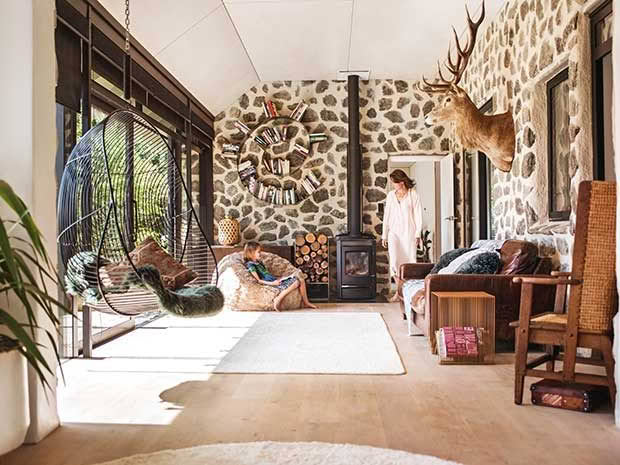
A Wanaka couple’s enthusiasm for natural-fibre products weaves essential purpose into their business, warmth into their home, and ties them to a very personal pioneering past.
Words: Kate Coughlan Photos: Rachael McKenna
Exporter Ben Wilson was in a customer’s store in Tokyo, a high-end chain retailer, looking at the product he was there to sell.
Sitting alongside Ben’s finest New Zealand sheepskin, with its fibres straight and white, was its competitor, a 100 percent unnatural, synthetic product. It struck Ben, with a jolt of surprise, that the two looked the same.
“The ironic thing was that we were spending all this time, money and energy converting a natural product into something that ended up looking synthetic whereas the synthetic manufacturers were trying to make their product look natural.”
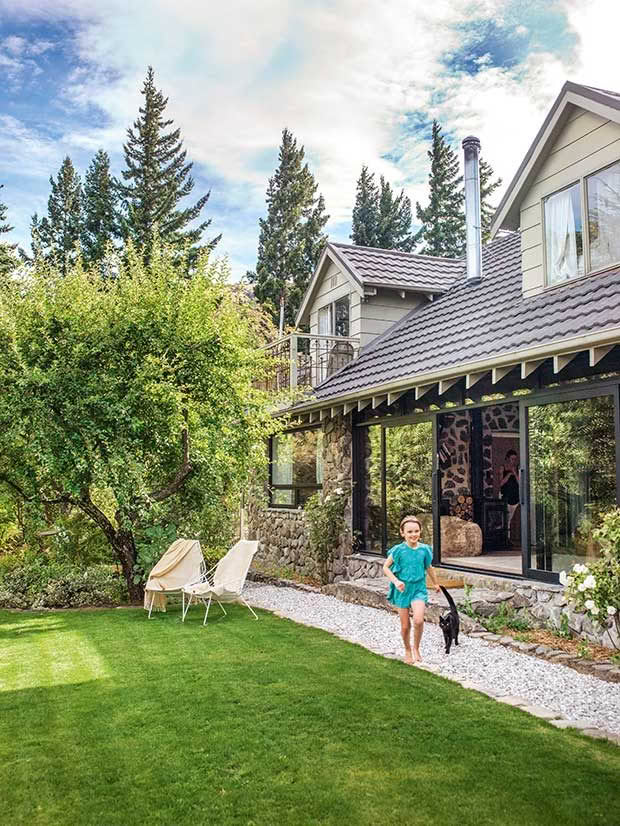
The house, originally designed for Ben’s grandparents, was extensively renovated in 2016. It had no insulation so was previously the coldest house in Wanaka.
Although his company was selling significant quantities of processed New Zealand sheepskins to Asia (and still does), the startling realization caused Ben to ask a key question: “Why don’t we just give people a product with enhanced natural characteristics rather than a product in which we have all but destroyed them?”
That was eight years ago and, on his return home, his wife, who was running their fledgling business Wilson & Dorset (then called Wanaka Living), was in total agreement.
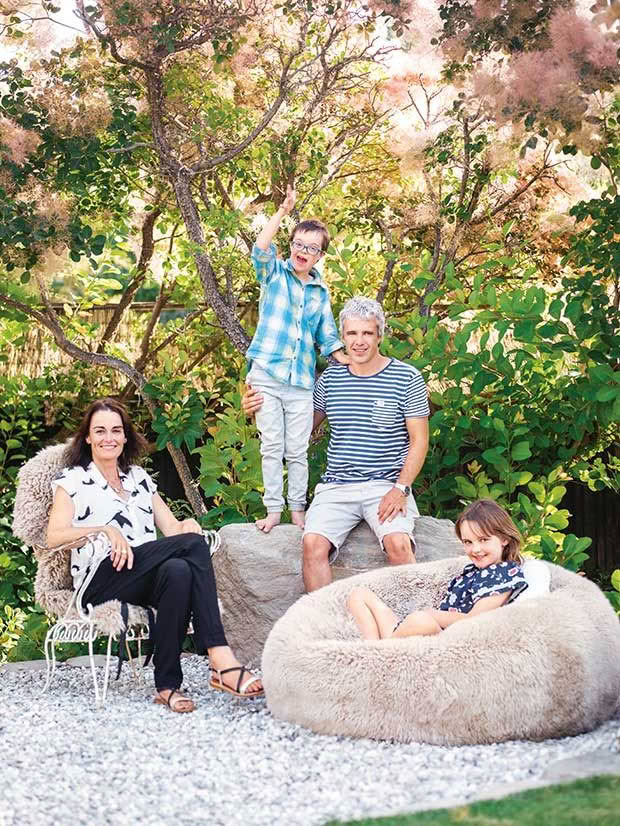
The Wilson/Dorset family found their forever home in Wanaka. “What keeps us here, more than the beauty of the environment, is the invigorating mix of people,” says Ben.
Amanda Dorset describes her passion for wool as bordering on weird. Her love of the fibre developed during the five years she marketed Icebreaker in the early days of the now-iconic New Zealand outdoor clothing brand. If ever there was a couple destined to do great things with wool, it’d have to be this pair.
It was by nurture, rather than nature, that Amanda developed this passion – bringing wool’s natural features into the spotlight in the creation of fine apparel. She hadn’t started out in marketing or anywhere near wool; her family were in the dentistry arena.
Her University of Otago law degree was followed by a few years in civil litigation with Gifford Devine in Hawke’s Bay, before she set out for London to pay off her student loan by working for Robert Walters Legal, Price Waterhouse Cooper Consulting and IBM Consulting, as a management consultant, then heading home to the Icebreaker role.
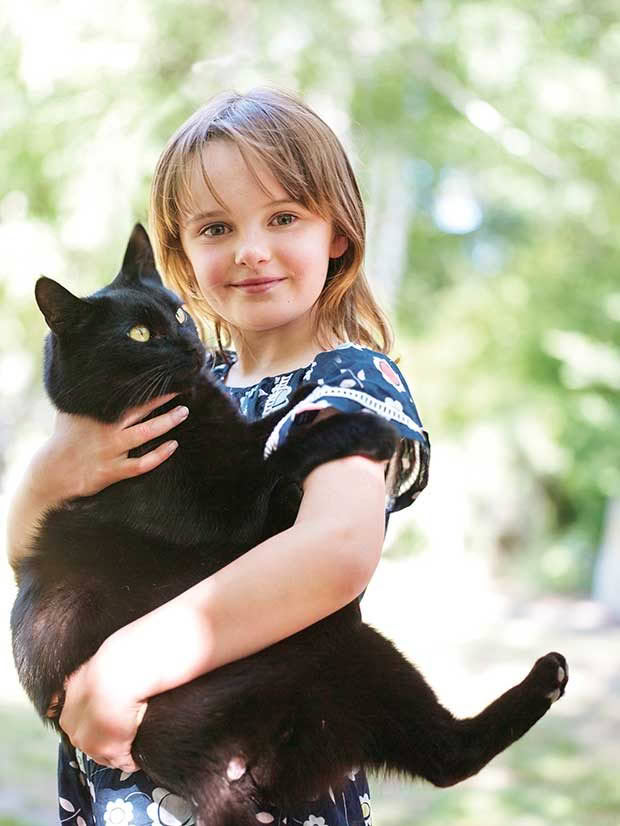
Bess cuddles upto Slinky. “He thinks he’s a dog and roundsus all up for a walk to the lake,” says Amanda.
In Ben’s case, wool might well be found in the prised-apart strands of his DNA. Each of his patrilineal forebears for the past three generations has been entrepreneurial with primary products.
His great-grandfather, whose portrait today affixes Ben with a beady eye from the wall of his office, left the family farm at Amdewarra near Geelong in Australia at the age of 20 with a carpet bag, a good outfit and a half sovereign.
He secured work on the Geelong docks with a small cartage business transporting goods to the goldfields in Ballarat, Ararat and Bendigo. One of his jobs was to dump empty 400-gallon iron tanks (used for shipping perishable goods) into the bay.
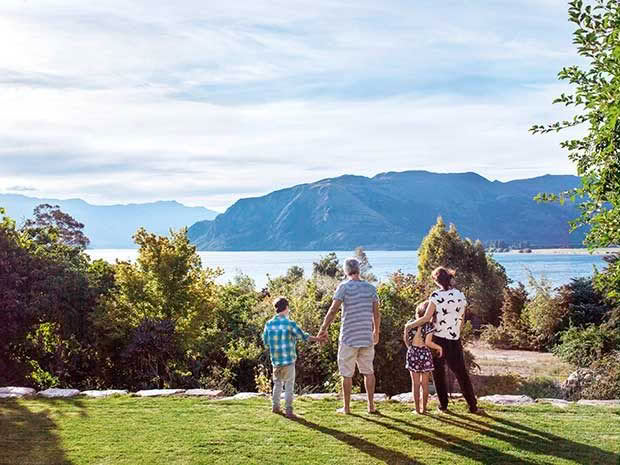
Dublin Bay, one of Wanaka’s most peaceful spots, is beautified by tall stands of trees all of which were planted more than 65 years ago by Ben’s grandparents.
Instead he leased a small section on the foreshore and neatly stacked the empties. In a stroke of good fortune these became a valuable commodity when Australia found itself in the grip of a drought and he used the barrels to transport water.
The profit on this fledgling business went to charter a ship (the Oscar) to New Zealand along with his cartage drays, horses and supplies. Upon emigrating to a new country, Robert Wilson was smart enough not to go chasing gold (this was the time of the Otago gold rush in the 1860s).
Arriving in Dunedin, he promptly sold all his goods for a handsome yield generating enough capital to charter another ship which returned to the South Island town with sufficient supplies and wagons to start the R Wilson & Co Merchant Trading business.
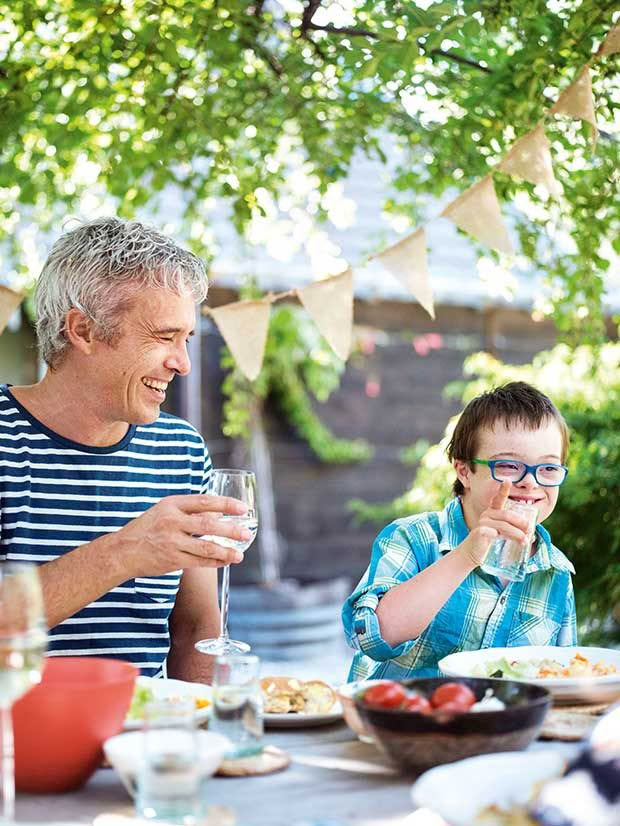
Ben’s father, also called Robert Wilson, who died late last year, was an exporter of almost everything imaginable. “You name it, he probably had his hand in exporting it at some stage. He was at the beginning of a lot of industries.”
With merchandising in his genes, Ben got excited about taking a natural sheepskin product to the world while Amanda saw the same potential for wool within the interior-design industry that she’d seen it fulfill in the clothing game.
“I’m passionate about wool and what it can bring to our most intimate spaces, our homes. We are selling a product for a lifetime and I get a lot out of engagement with customers who want a more natural product with less processing, and more tactile things in their lives.”
Watching people enter the Wilson & Dorset shop in Wanaka has been an eye-opener. “Customers rush in with a mindset of spending two or three minutes looking around. Once they feel the natural warmth of the pieces, I see them exhale and relax.
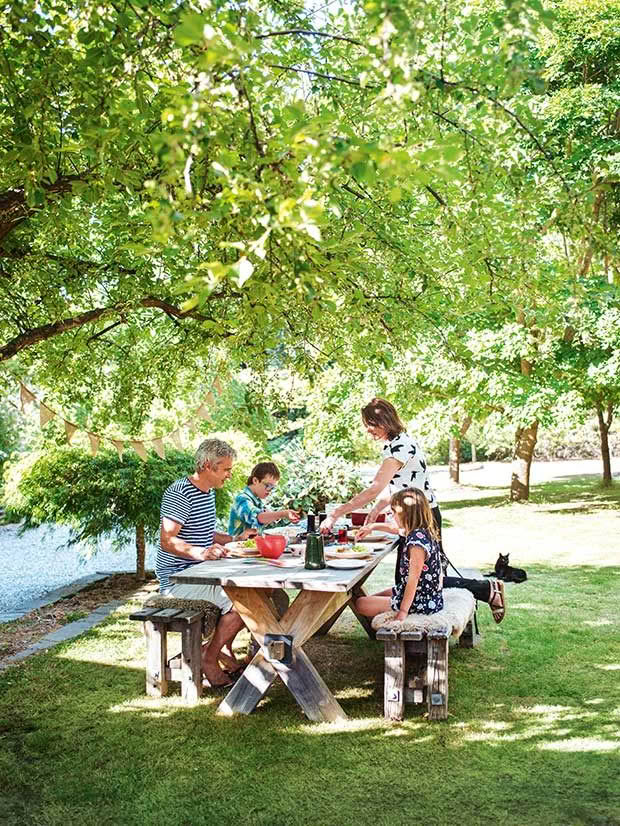
“We can be sitting outside, and it’s blowing madly elsewhere, and we are grateful for their plantings.”
Their children run and catapult onto a shaggy bag and sit there stroking the fleece. Something about the natural fibre seems to calm people. I know it sounds cheesy and weird, but my passion for wool is deep. It seems to slow and de-stress people.”
Nine years ago, Ben and Amanda had every reason to value the nourishing powers of de-stressing when their eldest child, Louis, was born with Down Syndrome.
“We were in no way prepared for it and, even though we’ve had good family support, it’s been a challenge.”
For the first few years, Amanda put the Wilson & Dorset brand on the backburner in order to focus on giving Louis the best start in life. It’s paid off and he is now at school at Wanaka Primary with his sister, eight-year-old Bess.
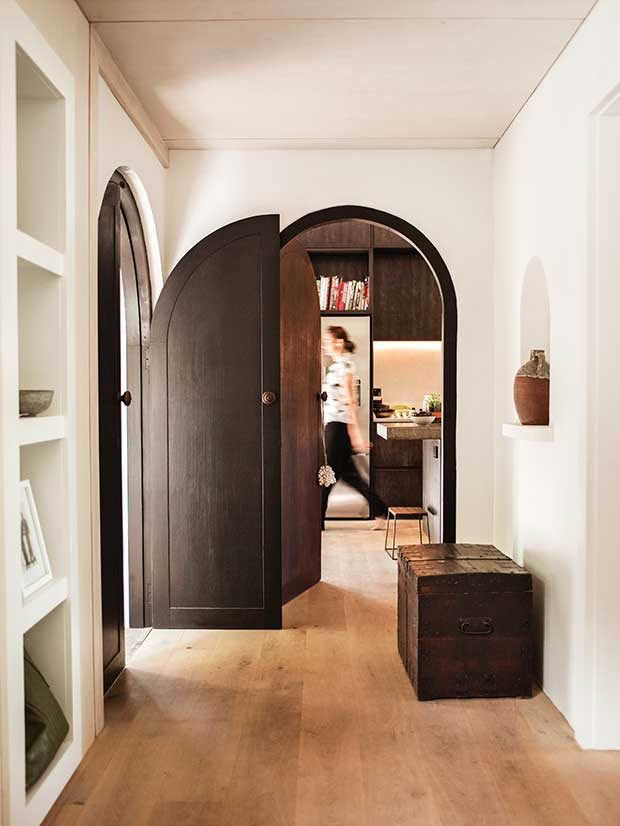
The school works hard to include him in everyday primary-school life. He’s reading, communicating and the source of much pride to his parents.
Not everything is easy. Louis suffers from the severe sleep disturbance, sleep apnoea, which commonly accompanies Down Syndrome. The household is into its ninth year of broken nights.
“It’s a real challenge,” says Amanda who values the three nights a week of respite assistance they get. Even so, sleep is such a precious commodity that they always retire to bed early and any opportunity for a sleep-in is eagerly taken. It’s a way of life they must follow to cope.
Wanaka has always felt like home to Ben, but that’s only one of the reasons the couple gravitated here.
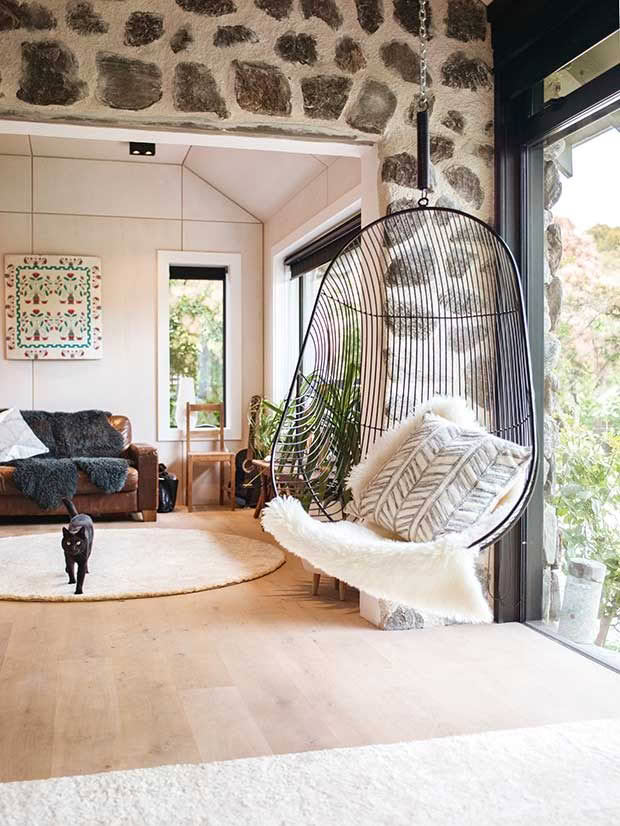
Ben’s grandfather came to this area in the 1920s. The first house he built was of larch; 50 years later it was replaced with this stone house which has since been warmed up with superinsulation in the walls and beneath the new oak floors.
They’d known each other in secondary-school days in Christchurch and reconnected when Amanda, whose Icebreaker role was based in Auckland, joined a friend for a southern road trip that included attending a housewarming party in a remote town in south Westland.
As a helicopter hovered to deliver a load of fresh crayfish and venison, Amanda realized “shy, smiling Ben Wilson” (whose house was being ‘warmed’) and whom she remembered from school, wasn’t quite so shy after all.
The party at Hannah’s Clearing, near the mouth of the Haast River, must have gone well and Icebreaker (not wanting to lose her) was happy for Amanda to move her role to Wanaka.
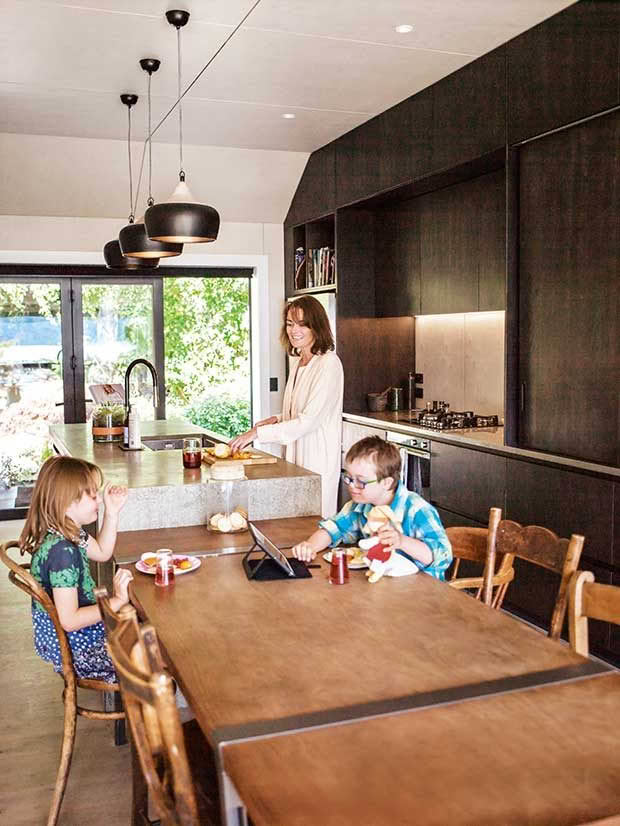
Bess is a supportive sister to Louis who has Down Syndrome. She often ends up acting in the social stories that Louis loves to make on his iPad.
The town had always laid claim to Ben’s heart. Even if it was not his official home, it had always been his family’s holiday destination and, in his years of roaming New Zealand and the globe, he always thought of it as home.
Once Amanda moved south to be with him, they recognized that not only is the town cradled in the arms of splendid natural beauty, but its inhabitants are an interesting mix.
This is, says Ben, a common story and part of their attraction to the place. “Almost everyone in Wanaka has an interesting story. Many wear multiple hats often with jobs overseas or in other New Zealand cities.
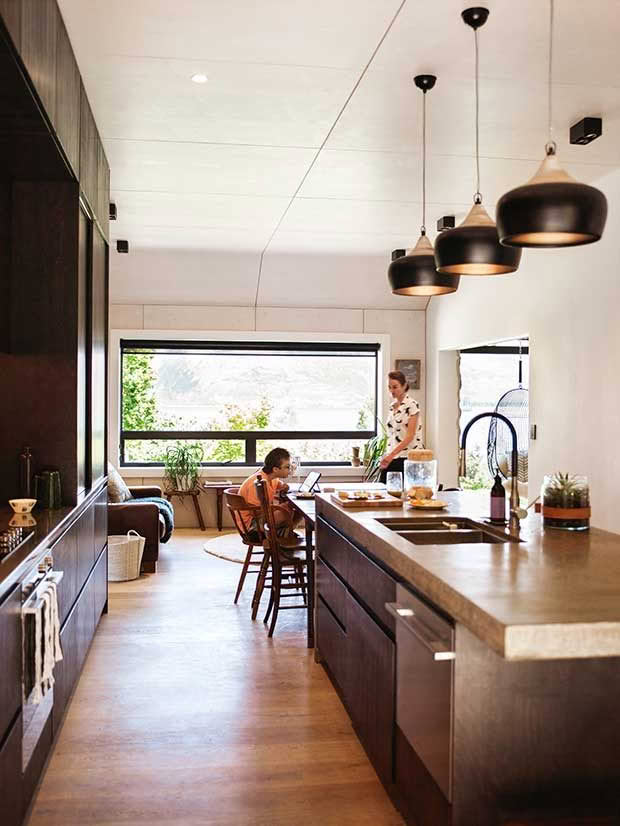
It’s a unique set of people and I really hope that, even with the fast-rising property prices, that doesn’t change.”
In addition to his focus on Wilson & Dorset, Ben is an export-management consultant working with the Talley’s Group (a privately-owned food exporter), a director of a solar-energy company in Cromwell called Infinite Energy, and consults to Auskin Group which owns the Chinese-based tannery where all Wilson & Dorset product is tanned.
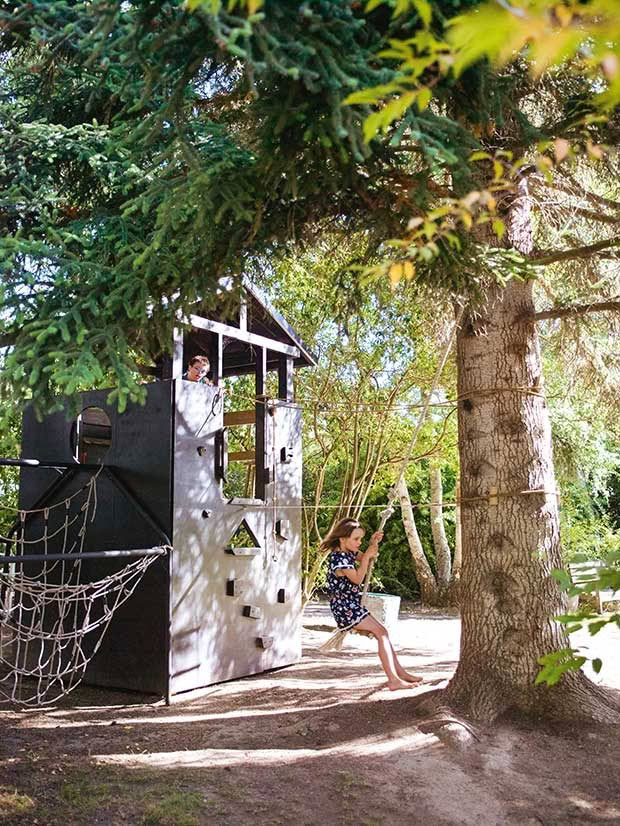
The treehouse was designed and built by Ian Colville who was the boyfriend of one of the family’s nannies. Ben, Bess and Louis pitched in to help using bits of timber gathered from around the property and left over from the renovation.
Today, he and Amanda live in the Dublin Bay home his grandparents built for their retirement in the 1970s.
It’s an ideal location with a nine-minute school run and an 11-minute trip into the heart of town. “We have the best of both worlds; it feels peaceful and secluded, yet we are minutes from the thick of things,” says Amanda.
BORN TO TRADE
Ben’s father Robert Wilson, like his father before him, followed in his forebears’ footsteps helping to launch a number of New Zealand’s key export industries.
With close friend Sir Tim Wallis, he arranged the first successful helicopter deer-recovery operation from the Matukituki Valley that began the export of venison to Europe.
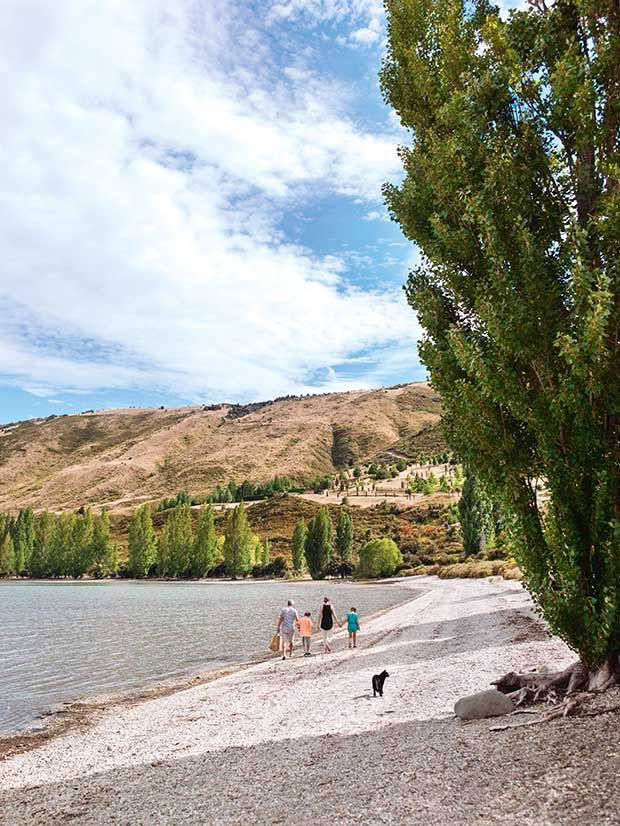
He was also involved in the early stages of the sheepskin and possum-skin industry as well as other export projects – from seafood and live lobster to ginseng, deer velvet, natural soap products, cherries, dried flowers, honey and dairy products among others.
In conjunction with Leroy Parker of Port Chalmers and Australian company Auskin Group, he was instrumental, 20 years ago, in the construction of the Xuanhua Tannery in Inner Mongolia.
Building and operating a tannery in China is not without its challenges. “The energy footprint and environmental bar the factory has to meet in China is high – in fact equal to or higher than what we’d likely need to do if we were operating within New Zealand,” says Ben.
“China has a massive pollution problem which is why the compliance standards are high and keep getting higher. This includes every litre of water being monitored by the central government as it leaves the factory.”
To meet these standards, the factory owners have invested millions of dollars in water treatment and alternative-energy solutions including a massive solar hot-water system and converting the factory’s boiler from coal to natural gas.
THE WONDER OF WOOL
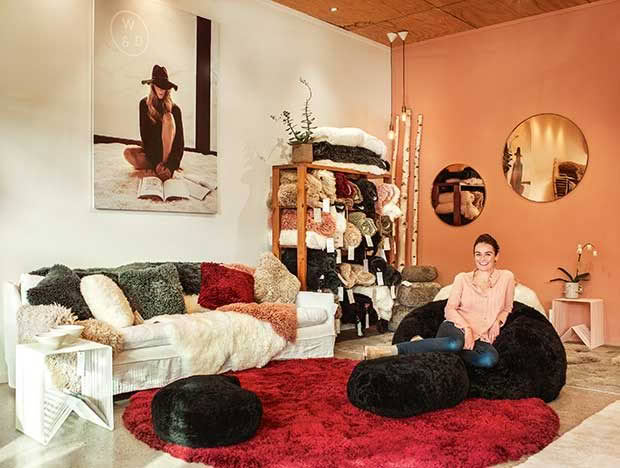
“Today many people have concrete, wooden or tiled floors in their homes and a lot of hard surfaces respond very well to our products. Those clean lines are beautiful, but it can be nice to soften them. Suddenly, our customers find they’re not sitting on the sofa to read but lying on the floor on one of our shaggy bags or skin rugs.” – Ben
“Customers come into the shop and everything slows down for them; it’s quite fascinating to see the power of a natural fibre. I know it sounds like sales speak but it really happens. We are selling products for a lifetime; you can treat them quite roughly, but they’ll last forever.” – Amanda
https://ourwayoflife.co.nz/be-in-to-win-wilson-dorset-luxury-nz-sheepskin-shaggy-bag-valued-1690/
Love this story? Subscribe now!
 This article first appeared in NZ Life & Leisure Magazine.
This article first appeared in NZ Life & Leisure Magazine.
